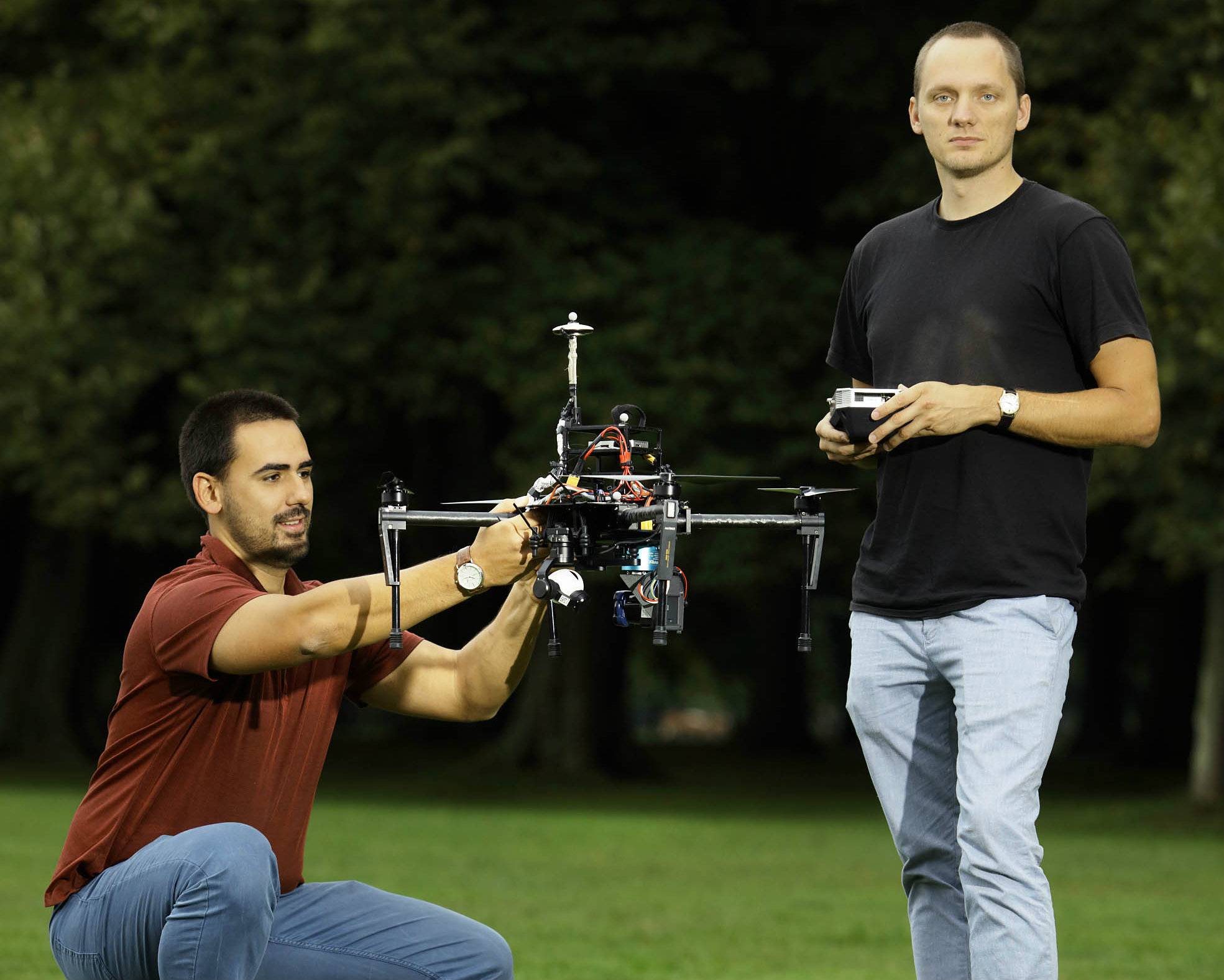The founders of Mainblades Inspections found a new use for drones: inspecting aircraft for damage.
Dejan Borota (l) and Jochem Verboom. (Photo: Sam Rentmeester)
- Name: Dejan Borota and Jochem Verboom
- Degree programme: Electrical Engineering (Borota) and Mechanical Engineering (Verboom)
- Company: Mainblades Inspections
- Product: Aircraft inspections
- Employees: 3 founders, 4 employees, 2 final-year internships
- Target group: Aircraft maintenance companies and airline companies
- Five-year target: Market leader in this field
Aircraft are inspected regularly, sometimes briefly, sometimes extensively. All aircraft is subject to a tight inspection schedule. An aircraft struck by lightening is inspected straight away, which means it has to be grounded for a few hours.
TU Delft alumni Dejan Borota and Jochem Verboom worked with KLM pilot Mark Terheggen to find an alternative solution. They installed a sensor on a drone that automatically inspects for damage after a lightning strike. “The technology is very similar to that of a self-driving car,” explains Verboom. “But you always need to have a human in the loop. Now this is the drone operator, but in the future you will only have a supervisor who monitors the process.”
Borota and Verboom met each other in Zurich when they were studying. Back in the Netherlands, they followed a course for start-ups at YesDelft. They did not have a clear plan yet, but they knew they wanted to start a business. TU Delft connections introduced them to KLM.
They both now had jobs; Borota was designing a cleaning robot for Fleet Cleaner, another TU Delft start-up, and Verboom was programming security robots. “…I wondered if we would also be able to clean aircraft,” explains Borota. “That plan proved to be unprofitable, but I did learn how time-consuming the inspections were, while the drone hype was just starting. So we conceived the inspection drone.”
They launched their company together with Terheggen in 2017. “We made our first test flight in July 2016. after which we continued development. The second test phase at KLM is scheduled for October, when we will spend about 6 months testing the drone twice a week. If all goes well, we will then commence production.”
‘Having competition is good, because it keeps you sharp’
Mainblades is not the only company working on this technology. Two companies in France and the UK are roughly in the same development phase. “It feels like a race against the clock, because we want to be first,” says Verboom. “Though having competition is good, because it keeps you sharp.”
One of the problems the start-up has is finding funding. “We do not have a regular paying customer yet.” So, alongside funding from KLM and research grants, they have also invested their own money. “It can be hard. We need to develop the technology before we can present the product. It will take off once we get our first paying customer, which will help us gain the confidence of other customers.”
While the customers may still lack confidence, the young entrepreneurs have plenty. “We have a achieved a lot with only a little money in a short time. We’re still a bit nervous, because we’re taking a risk. We’re sometimes forced to let people go we would have preferred to keep. But we’re convinced this will become a new tool for inspectors. It will eventually make aircraft safer, because it will enable faster and more thorough inspections.”
This article appeared in the October edition of the alumni magazine of TU Delft, Delft Outlook. Click here for the pdf.
Roos van Tongeren / Redacteur



Comments are closed.